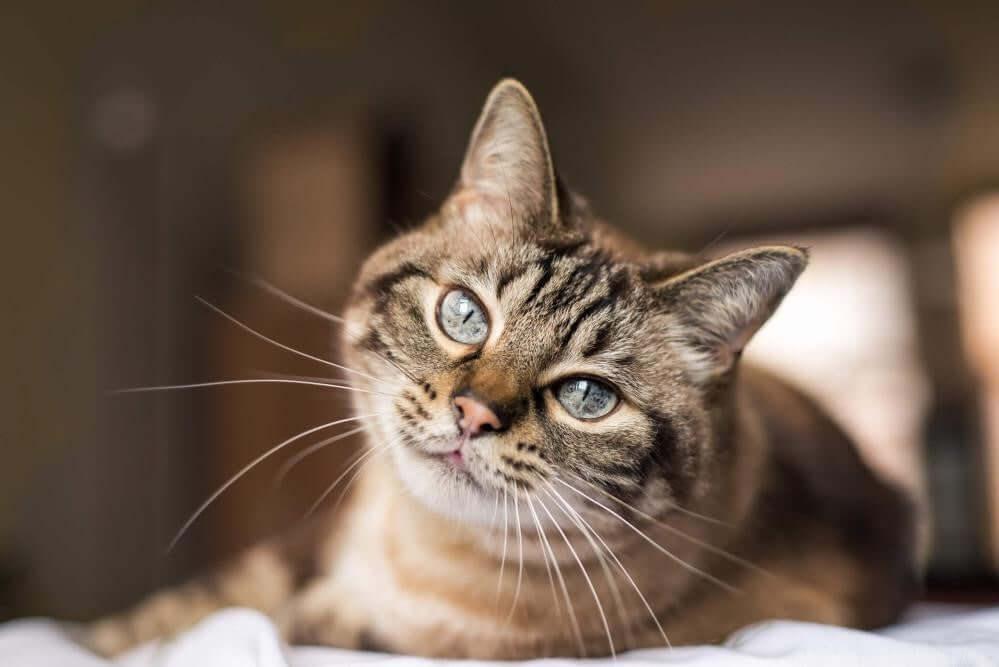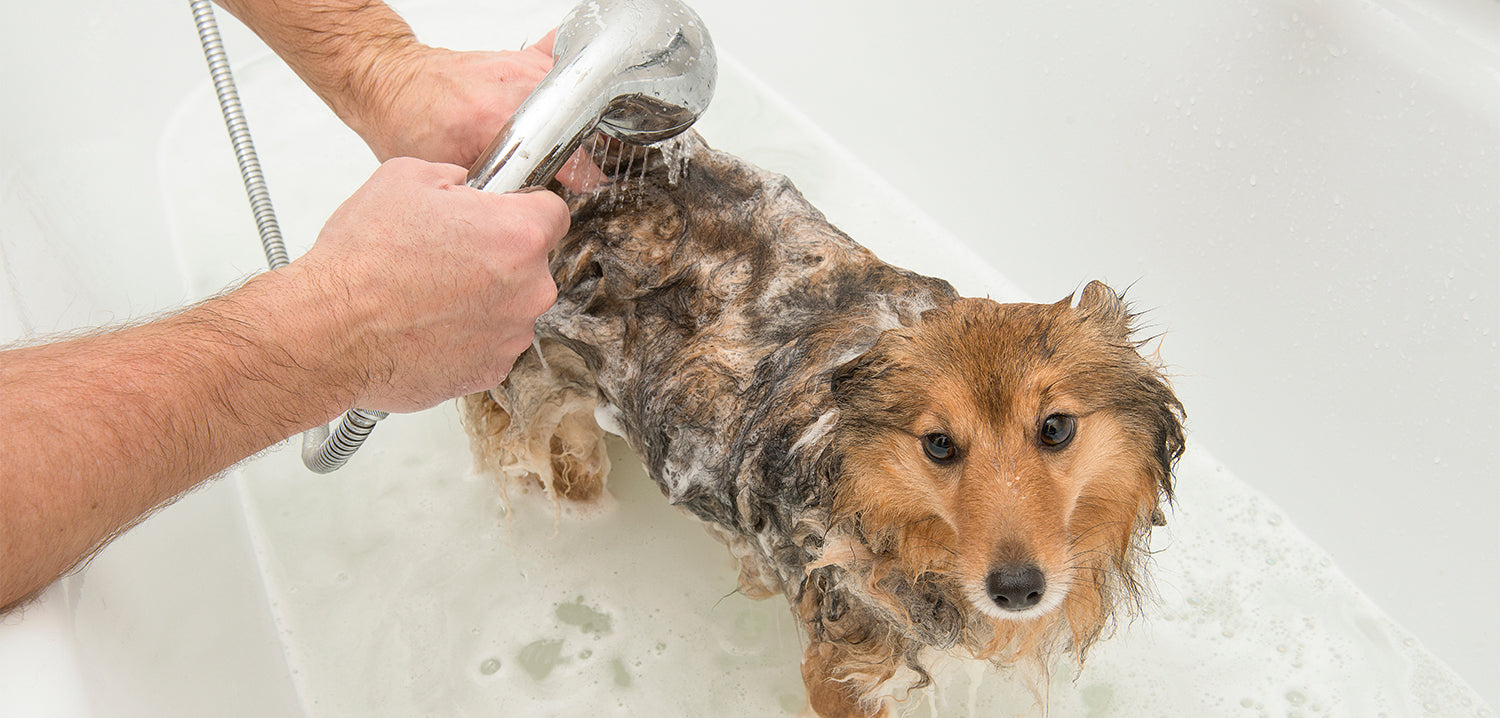Just like humans, cats can also experience reactions to any number of allergens, including foods, grass or pollen, skin allergies, medication, flea bites and more. If your cat is allergic to something, they may exhibit the following symptoms: Increased scratching or licking (overgrooming), coughing or wheezing, sneezing, hair loss, diarrhoea or vomiting. James Wellbeloved looks into the five most common cat allergies and how they can be prevented…
1. Flea bite allergies
It’s fairly common for cats to get fleas, but some cats are particularly sensitive to flea bites – this is called flea allergy dermatitis, or FAD. Cats with FAD are allergic to flea saliva, causing intense itching and a need to consistently scratch, lick, or chew the affected area. Untreated flea allergies can eventually lead to bald patches, sores or scabs on the skin which can become infected– so if you notice your cat developing these symptoms, or they won’t stop grooming, then it’s time to take them to the vet. The best way to treat flea allergies is to make sure your cat can’t get fleas in the first place. You should regularly treat both your cat and your home for fleas to reduce the likelihood of your cat catching fleas. Your vet should also be able to give your cat protection from fleas in the form of tablets, spot ons or injections, while steroids can be used to treat an allergic reaction itself.
2. Cat food allergies
Cats can be allergic to beef, dairy, soy and wheat, amongst other things. If you believe your cat has a food allergy, your vet can conduct a food trial to test which food, or foods, might be causing the problem. If your cat has a food allergy, you will need to make changes to their lifestyle to prevent the allergy from reoccurring. Food allergies cannot be cured, but steps can be taken to ensure that your cat does not eat specific foods. For example, feeding your cat hypoallergenic cat food can eliminate problem foods from their diet and help to keep them happy and healthy. All James Wellbeloved cat food is hypoallergenic and each ingredient is clearly displayed on the packaging, so cat owners can avoid feeding their cat any food they know will cause problems. If you are unsure how much or how often to feed your cat, check out this helpful guide for more information.

3. Atopy
Another common cat allergy is atopy, or atopic dermatitis. This can be caused by a few different things but occurs most commonly as a result of contact with grass, dust mites or pollen. Atopic dermatitis can affect the whole body, especially the eyes, ears and paws. Signs that your cat may have atopic dermatitis include licking, scratching or itching. In more severe cases, you may be able to spot bald patches, inflamed skin, or sores and bumps on your cat’s skin. If you think your cat may have atopy, a vet will be able to conduct several tests to rule out other options. Once diagnosed, they can prescribe treatment. A simple way to treat atopy is to limit your cat’s contact with the allergen; for example, if they are allergic to grass, monitor or limit their time spent outdoors to help reduce any symptoms. Alternatively, your vet may be able to prescribe allergy medication.
4. Household cleaning products
Just like us, cats can also be allergic to household cleaning products! Many household cleaning products contain strong chemicals which your cat can accidentally ingest by cleaning themselves after contact. If you notice your cat itching or scratching after you have used a household cleaner such as a floor cleaner or bathroom spray, they may be allergic to it. To prevent this from happening, make sure your cat is safely out of the way while you clean, and try to use less harsh, greener products to reduce the likelihood of an allergy attack. You could even try more natural cleaning products such as vinegar or lemon which your cat is less likely to be allergic to.
5. Perfume allergies
As cats have a much stronger sense of smell than us, it’s not surprising that they are more sensitive to scents and perfumes. However, some cats are so sensitive to perfume that it takes the form of an allergy. The obvious way to prevent your cat from this particular allergy is to stop wearing perfume or cologne and reduce the amount of scented sprays you use around the home. When you are expecting guests, let them know about your cat’s allergy so that new smells don’t set off a reaction. On the topic of scents, some plants are highly toxic to cats, including lilies. Lilies can cause severe allergic reactions in cats which can even be fatal. Signs of an allergy include foaming at the mouth or drooling, or vomiting. If you’re a cat owner, research which plants are toxic to cats and avoid having them in the house.












